I caught up with Juraj Straka for a behind-the-scenes look at the universe of Cartoon Called Life.
“The whole thing started 9 years ago…” explains Juraj. “It all started in a very innocent, non-planned way, when my boyfriend gave me the nickname – My Little Bunny.”
“I lived in Lyon, in France. My boyfriend was very keen on the fact that I come from Slovakia. He had this whole thing for Eastern European guys – which worked for me. He was really into learning Slovak – just small words and phrases.”
“We were talking about animals, and – for whatever reason – he asked me how you say ‘rabbit’, which is ‘zajac’. I don’t know why but he loved the word. He kept on repeating it and eventually it became my nickname.”
“I embraced the nickname. When I was writing a post-it or something – ‘please do the dishes’ – instead of signing it, I would just do a little doodle of a bunny. That’s how it started.”
“In the beginning, the whole thing was very private. It was just between me and him and our friends. I gave him a nickname also, he was Bear – ‘Medveď’. So the early adventures of the cartoon centred around Bunny and Bear, and our friends who made guest appearances.”
“It wasn’t funny back then. We would have a dinner with friends and I would make a drawing of Bunny and Bear having dinner with friends. It was just between us in a private group.”
“I’ve been artistic ever since I was a kid. My day-job was as a textile designer – illustrating and drawing patterns for textiles. Drawing was always my way of expressing myself. So, I had that background, but I’d never drawn cartoon-style illustrations before – it’s a very different style – it took me a long time to learn about it and explore and understand the process.”
“One of the things I had to learn was the use of text. That was new to me – I had always focused on visual representation. It was challenging to try and convey a narrative just with a few words and an image. But it was purely just for fun.”
“Then, I broke up with my boyfriend.”
“I stopped the whole project. It was too linked to ‘us’ – it was too personal.”
“It took almost a year before I realised that I missed it. I realised that just because Bear is gone, that doesn’t mean that the Bunny no longer exists.”
“I missed the drawing, and I missed Bunny as a character – he was my alter ego. The cartoons were a visual diary.”
“I restarted drawing, and started posting on Instagram. Through Instagram, I was now publishing to an unknown public – it was a different connection between the character and the audience.”
“At this point, I was living in Paris – I was single, and I was on the hunt for a beautiful bearded guy. Bearded guys are my thing. I’ve always been into bears.”
“I just started illustrating my single life in Paris – Bunny’s hunt for a bearded guy.”
“It became my creative outlet. Just something that I enjoyed doing for myself.”
“Through Instagram, I started to discover the world of ‘gay art’. I realised that when people talk about gay art, it’s generally porn or erotica or very explicit nudity. There’s nothing wrong with that, but there’s very little humour and it’s just all about sex. There’s much more to gay life than just sex.”
“I wanted to create something that was pretty much ‘mum-friendly’. We use jokes that are a bit kinky, but they’re always visually represented in a non-explicit way. Cartoon Called Life is created for a gay audience, but we have a lot of followers who are beyond the LGBTQ umbrella. We’ve created a universe that can speak to everybody while still speaking on a certain level to our community.”
“The audience started to grow organically. It wasn’t an overnight success, but there was a lot of positive feedback.”
“Then, my day-job of textile design brought me to Belgium. Around six years ago, I was offered my dream job, here in Brussels.”
“Soon after I arrived in Belgium, I met Laurent through Instagram – he was in Antwerp at that time. He saw the potential in the whole project.”
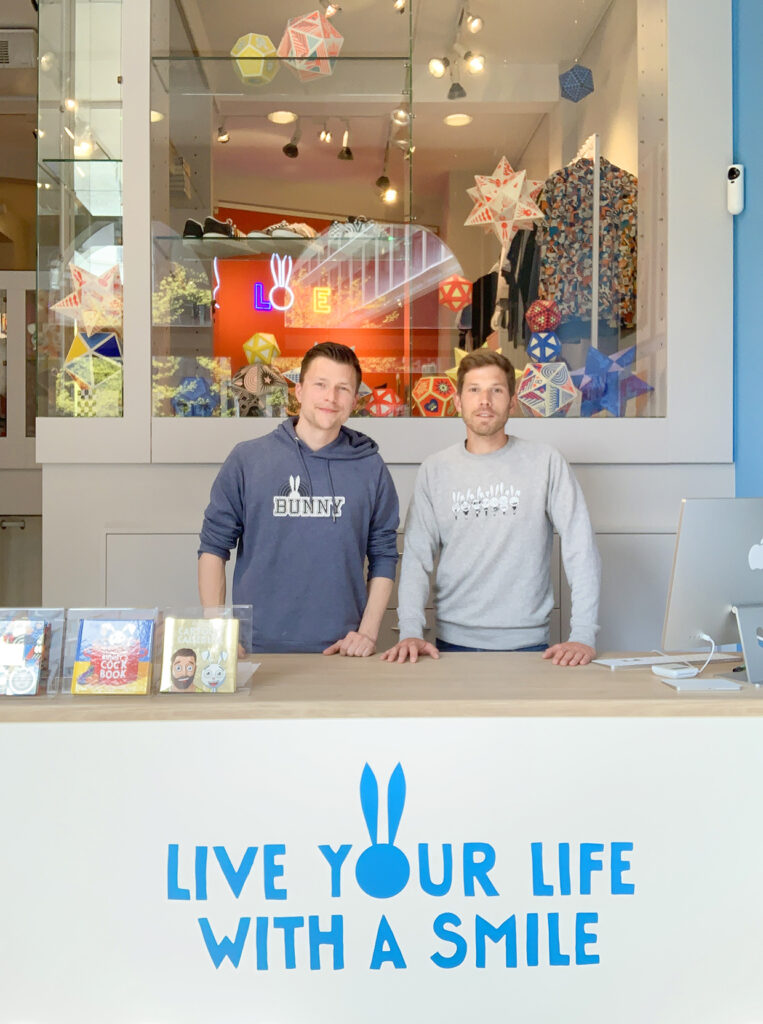
“At first, I was reluctant to turn my drawings of Bunny into another job – this was something that was just for fun.”
“But I did have a dream to publish a book. So, that’s where we started.”
“We self-published the book. I wanted total control – I was stubborn. It was so overwhelming to learn about the whole process. Plus, I had very specific ideas about how I wanted the book to look – that made everything harder. It was a huge project, but it was all worth it.”
“I cried like a baby when the first copies of the book arrived. It was very emotional – overwhelming and satisfying.”
“Publishing the book was the moment that Bunny went from being a hobby to being a brand. It triggered an avalanche of ideas. Things have been snowballing ever since.”
“The book launched our company. Soon after that, we started producing merch and selling through our online store.”
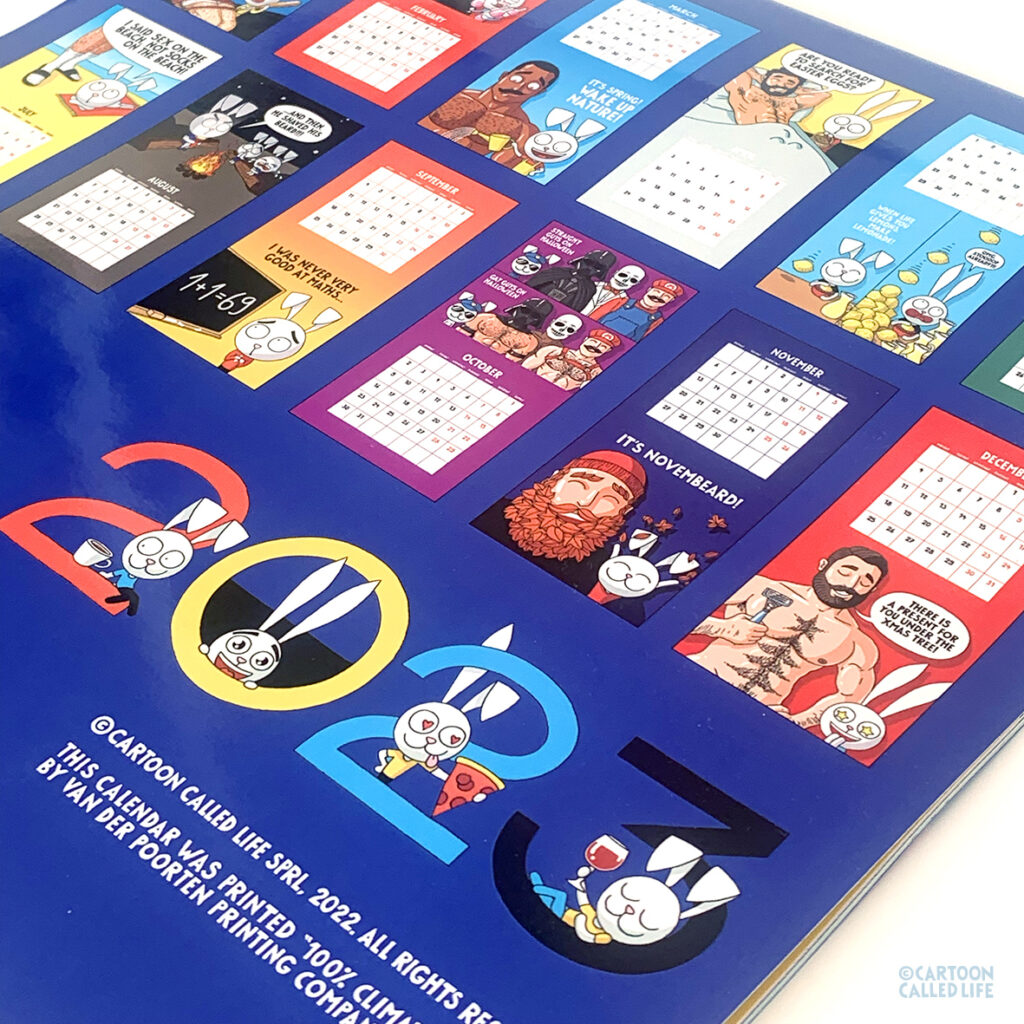
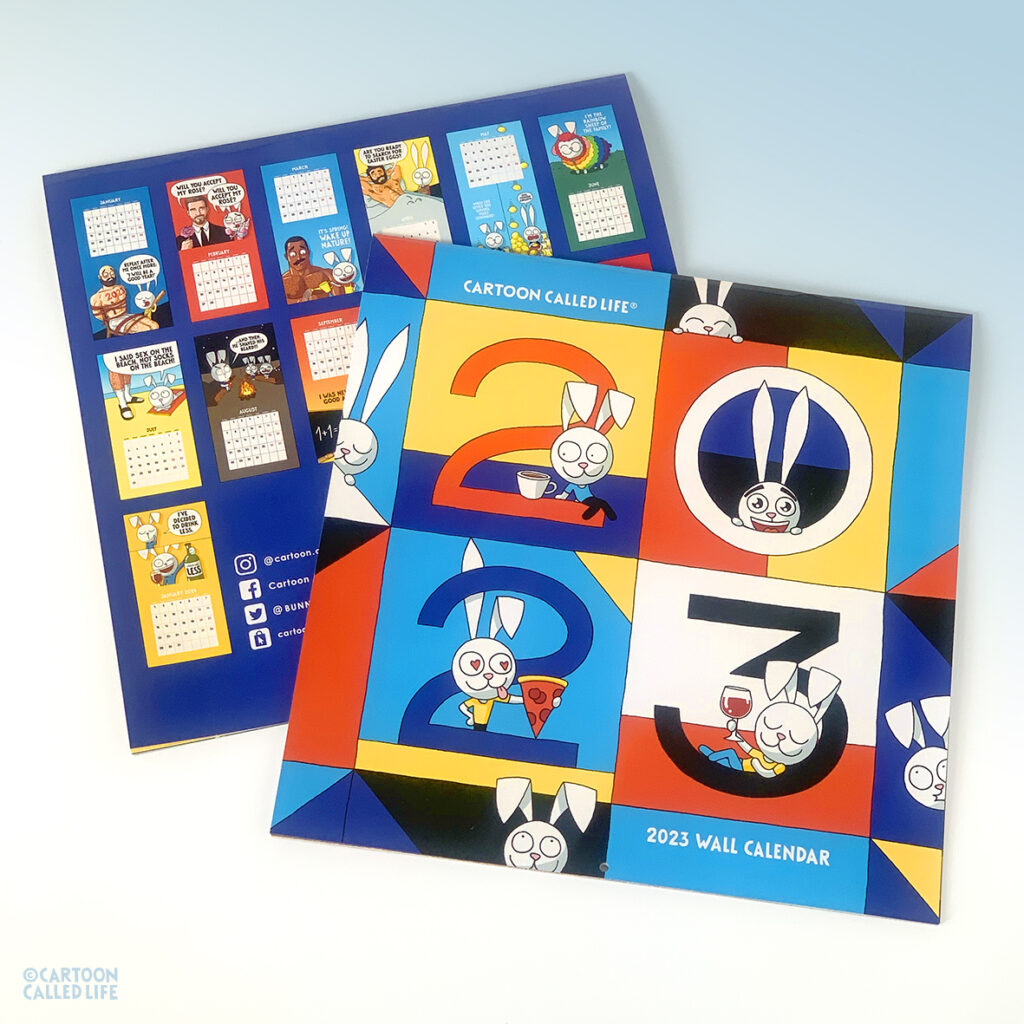
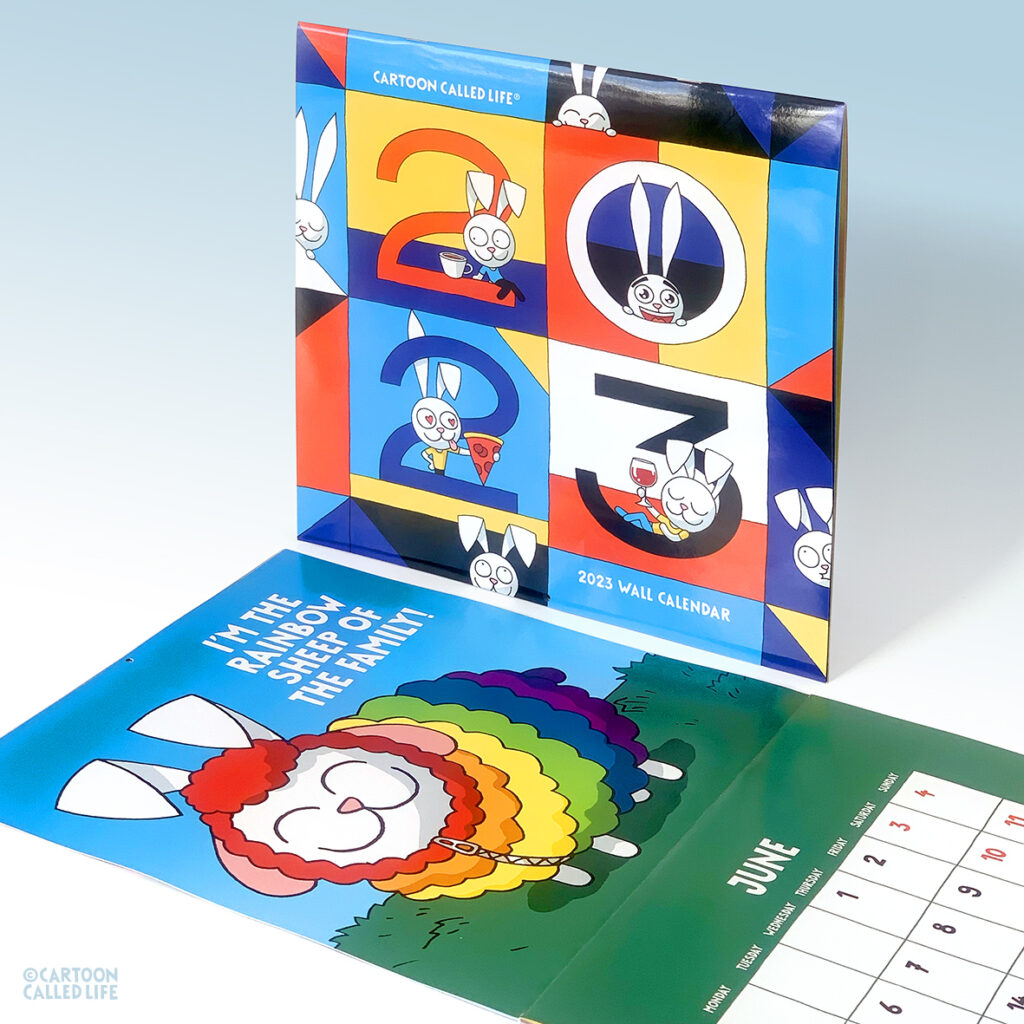
“Five days before Covid, I quit my other job to focus on Bunny and Cartoon Called Life. It felt really crazy – it felt like the whole world had collapsed.”
“It was very difficult for me to try and create cartoons – suddenly, nothing seemed funny. My jokes were all about dating, going out, drinking, and friends – suddenly, all of these things were frozen.”
“I stopped drawing. But that only lasted eight days. Talking it through with Laurent, we realised that people needed something to distract them, we just had to choose our themes carefully. The only way we could cope with Covid was to make fun of it.”
“Covid gave me plenty of material to work with. We were posting a cartoon a day, and that got a really positive response – people needed to laugh. I realised how important Bunny had become in people’s lives.”
“That’s one of the reasons that we decided to open the store here in Brussels. We wanted to connect with people in a more physical way than just being online.”
“The store is a boutique gallery. This space gives us the opportunity to show the entire universe of Cartoon Called Life – the comics, the art, and the different product categories. The art pieces in particular work much better in the store than just online.”
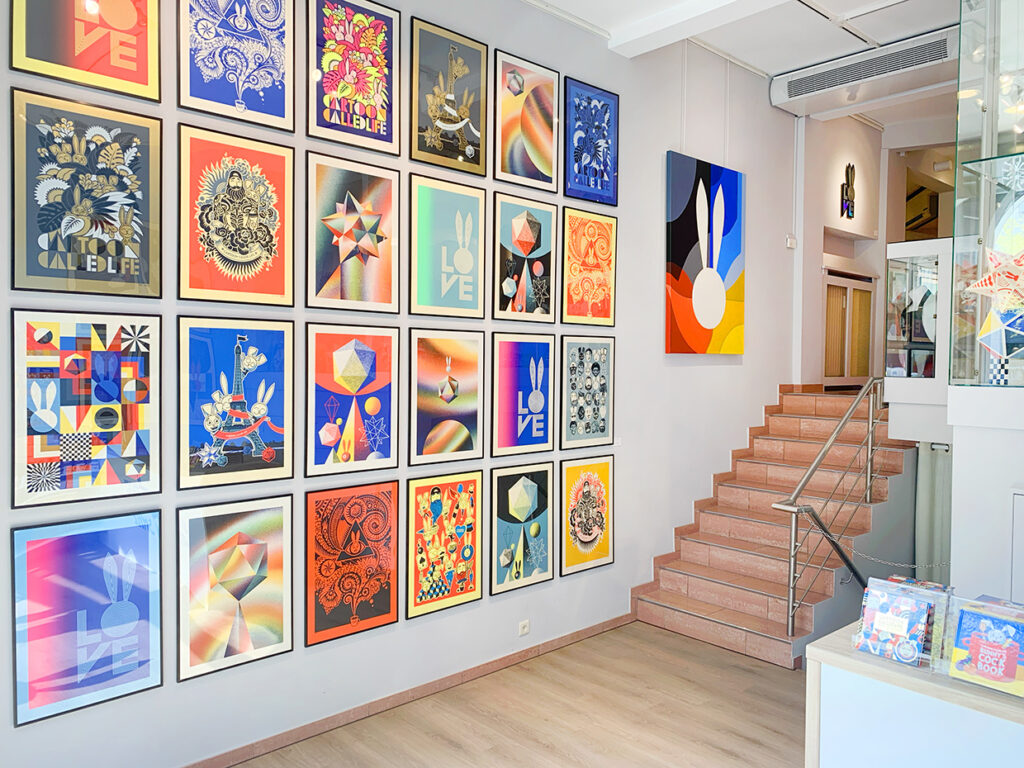
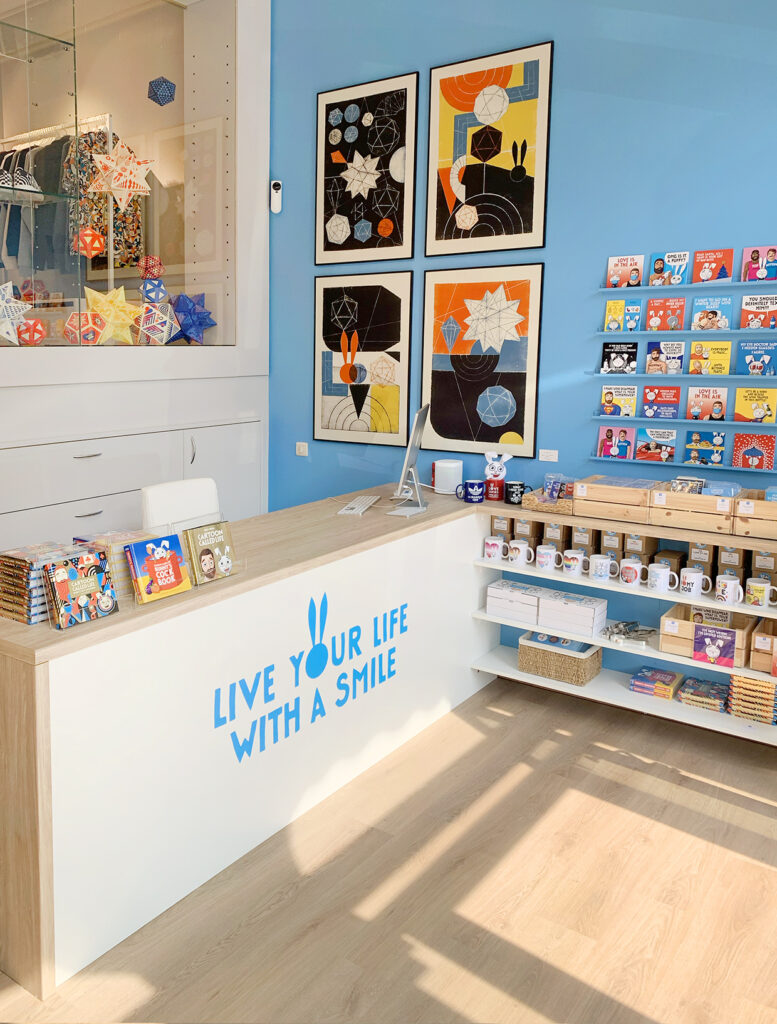
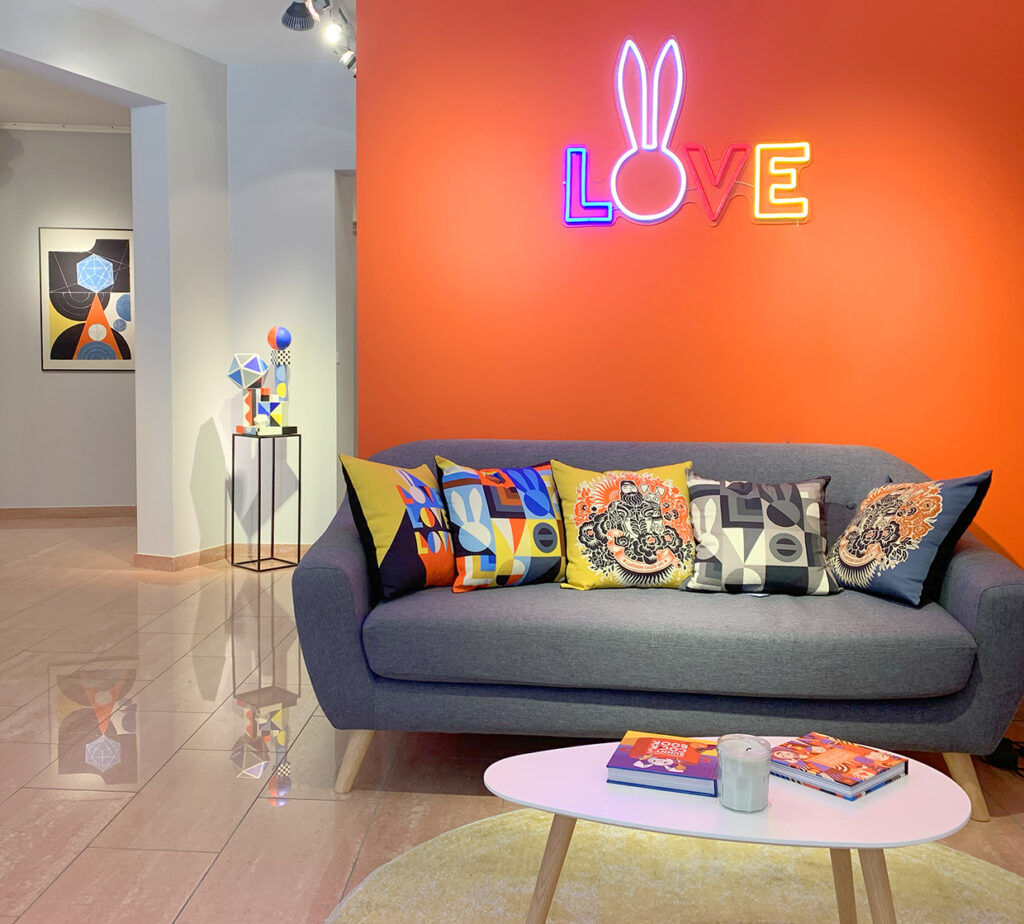
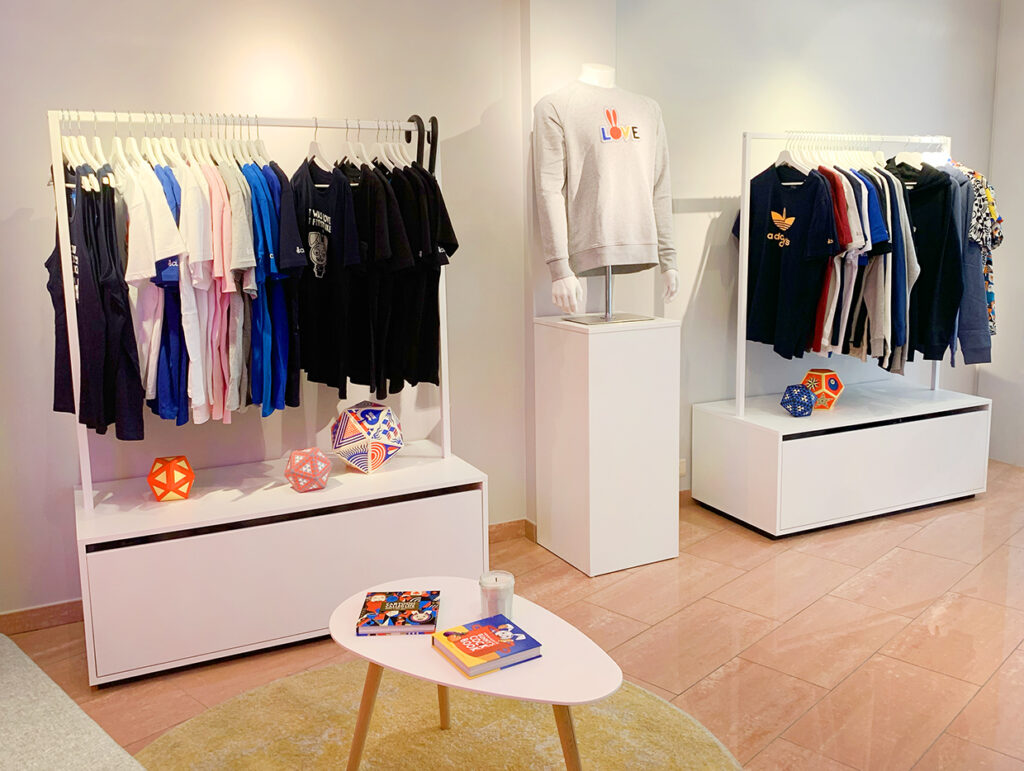
“The boutique gives us the opportunity to meet people in real life – people that we’ve known online for years.”
“Our dream is that the character of Bunny becomes a well-known character within the gay community – cool, funny and mum-friendly.”
“Our most recent publication is a cookbook. It was unexpected, we like to surprise people.”
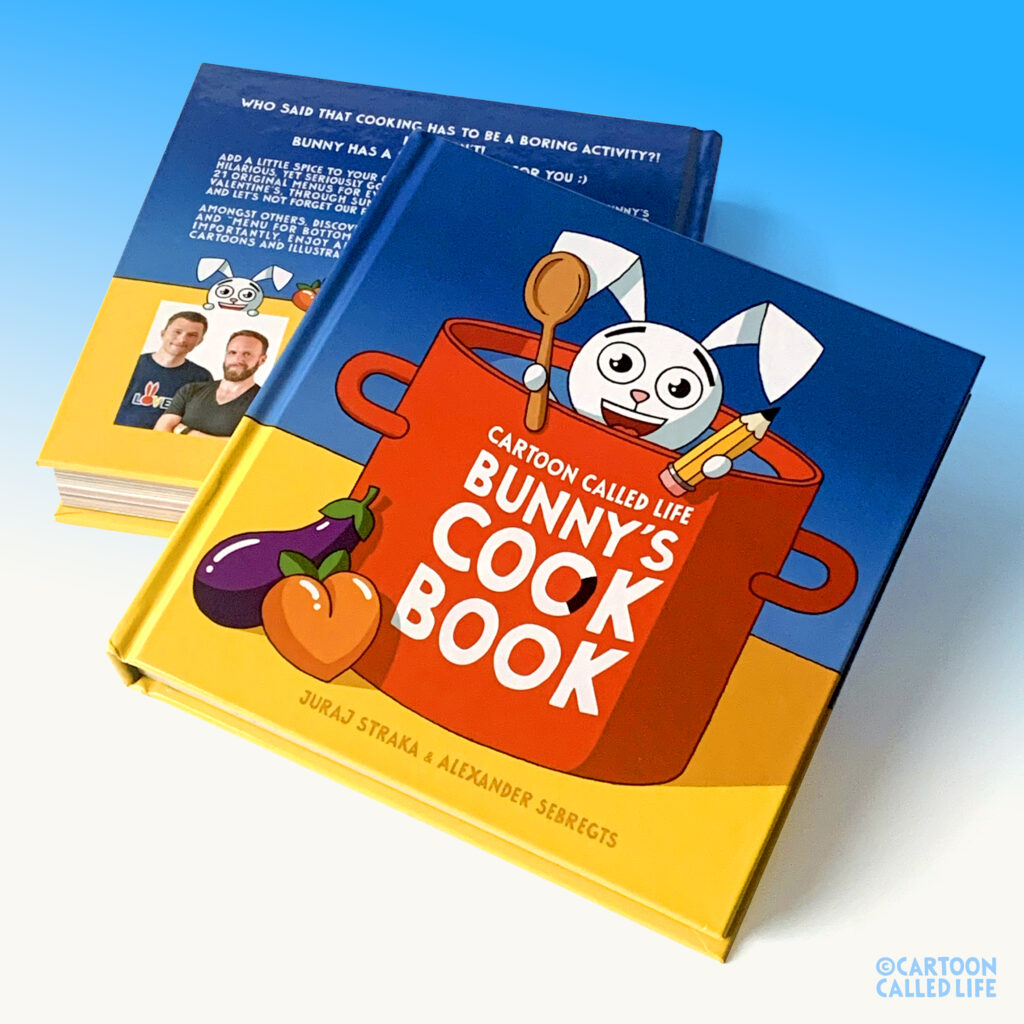
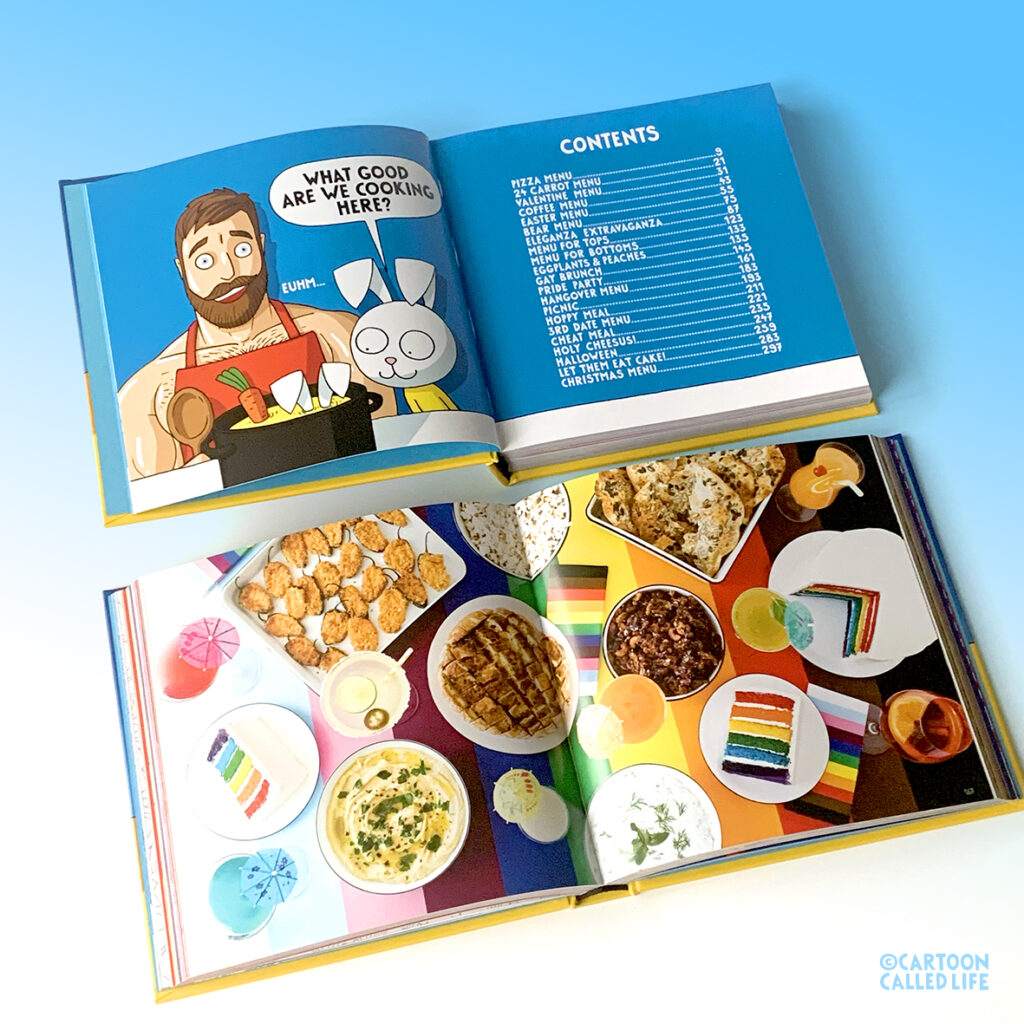
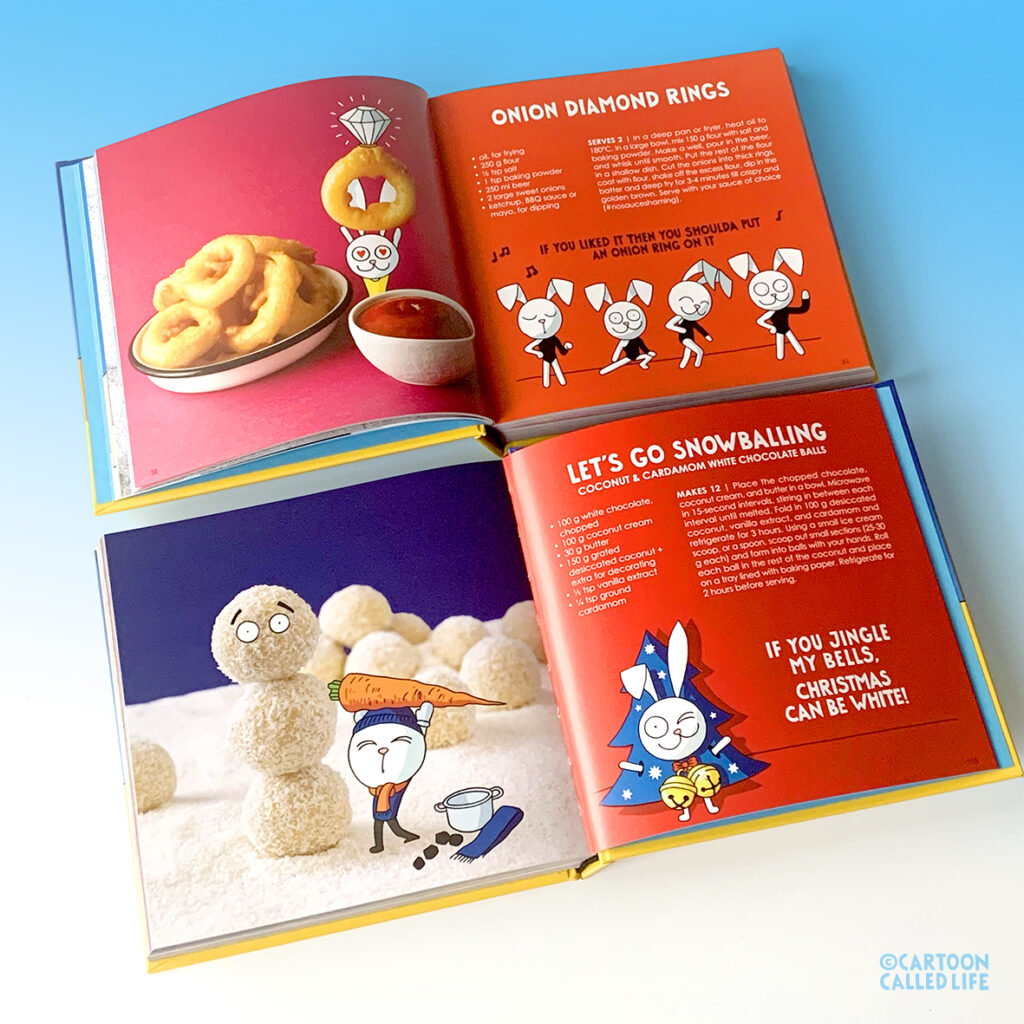
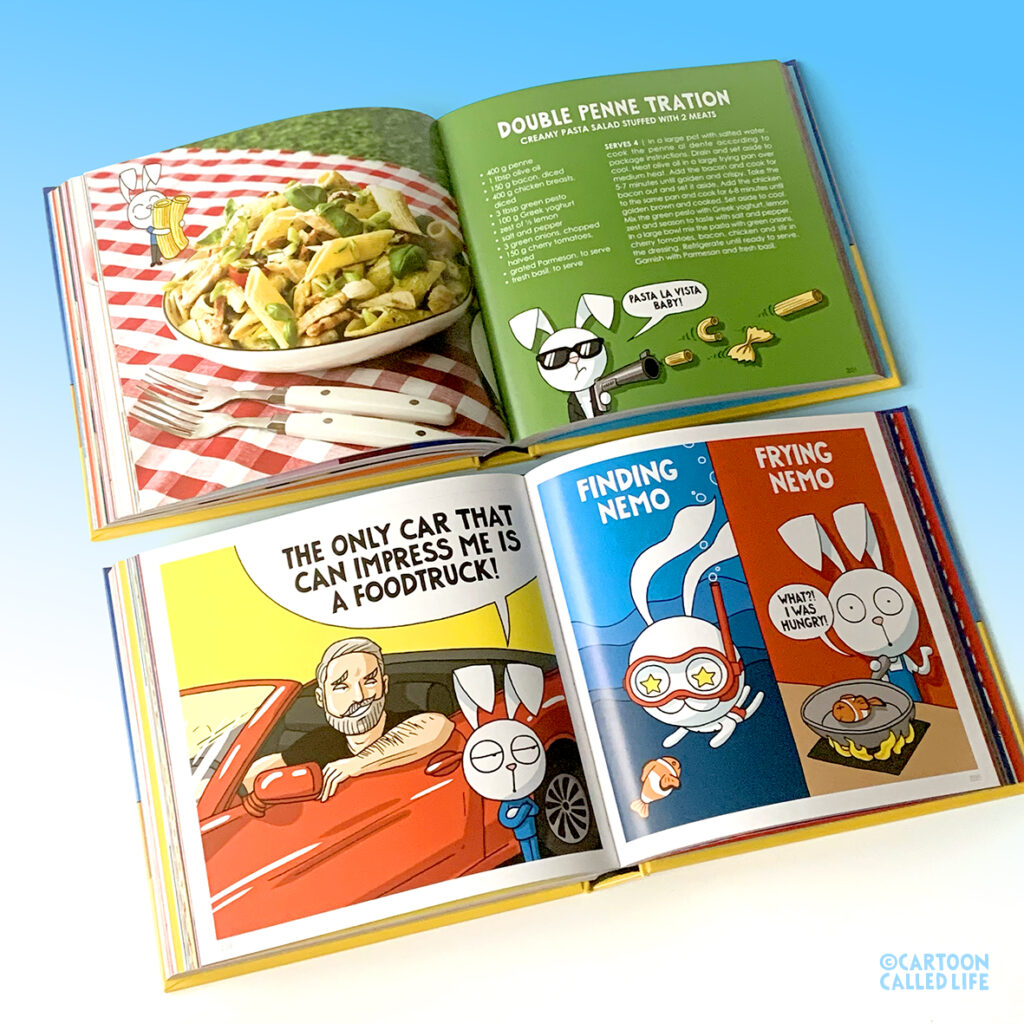
“The concept came out of a dinner that I had with my friend Alex – the co-creator of the cookbook. We were making jokes – turning the names of the dishes into stupid jokes. The idea stayed with us, and we decided to do it. It brings together the joy of cooking with the joy of making fun of things.”
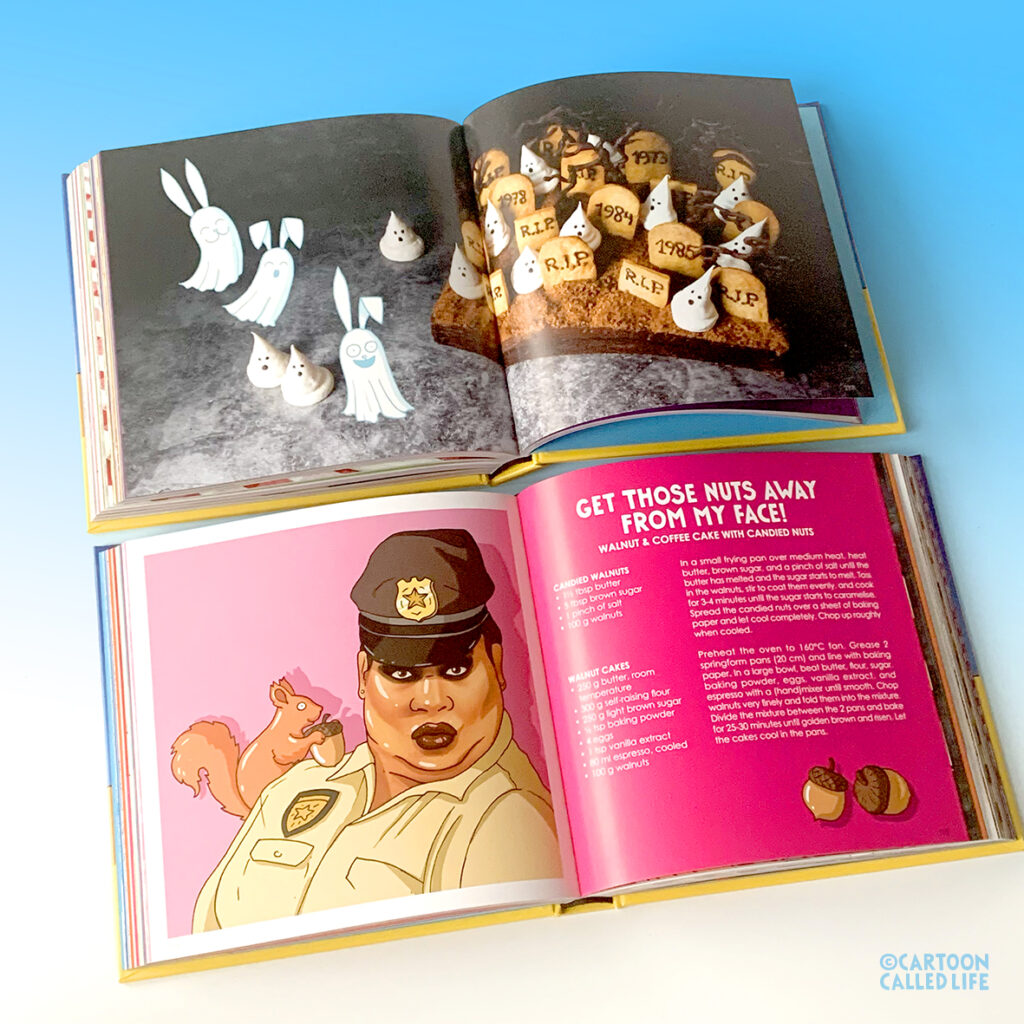
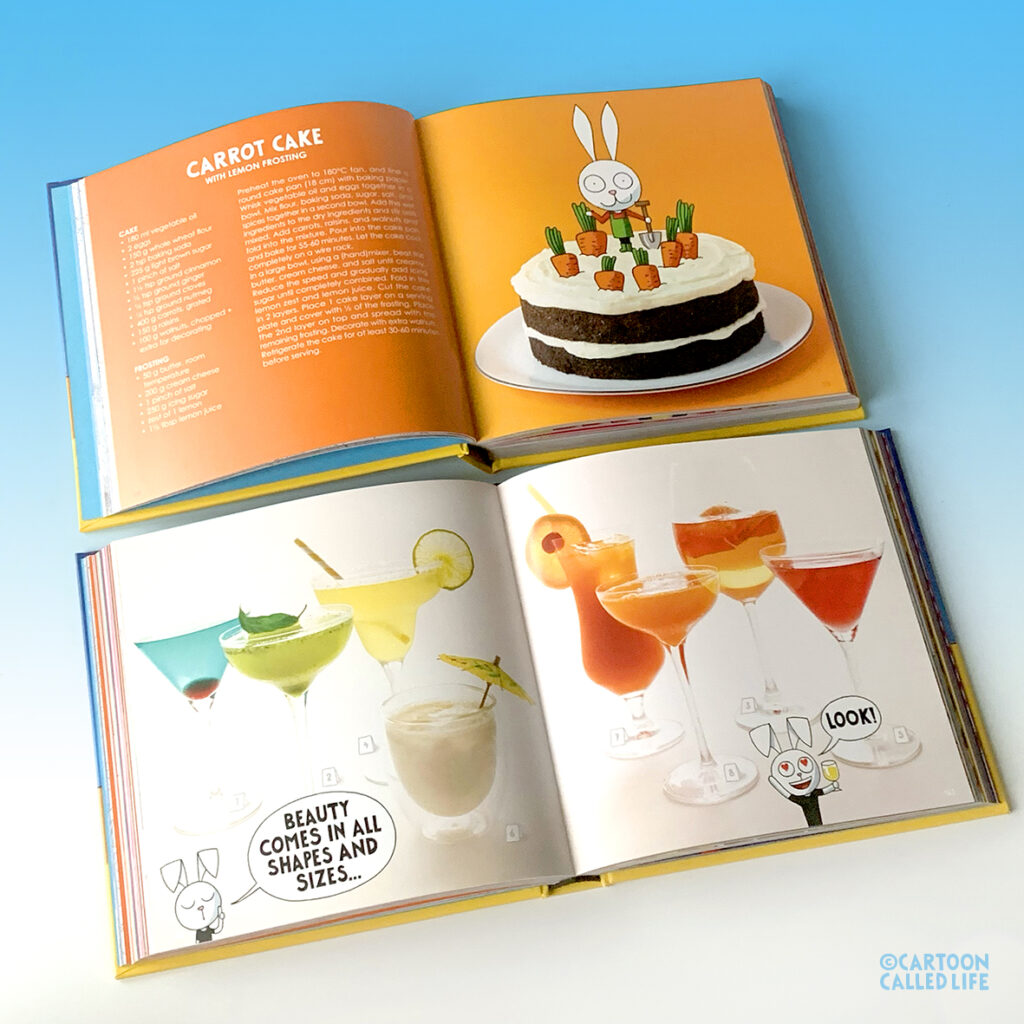
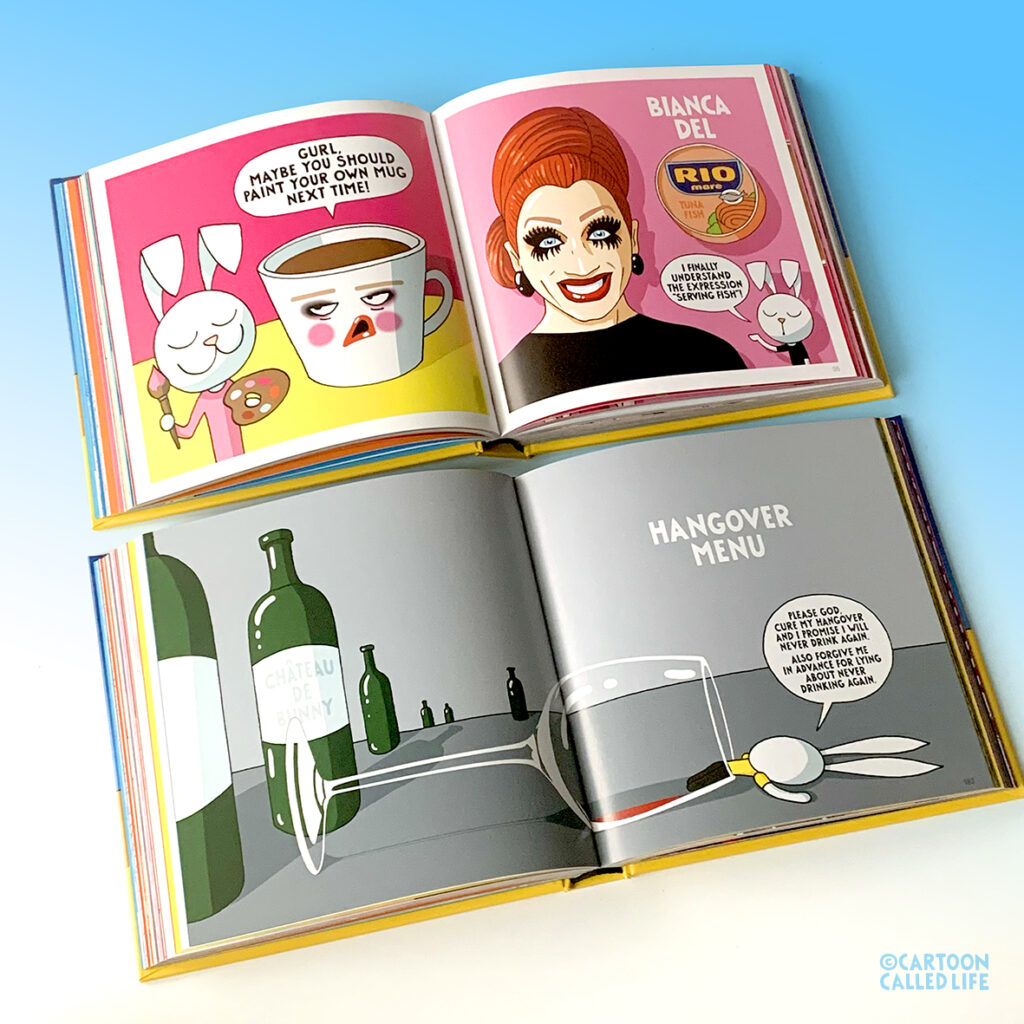
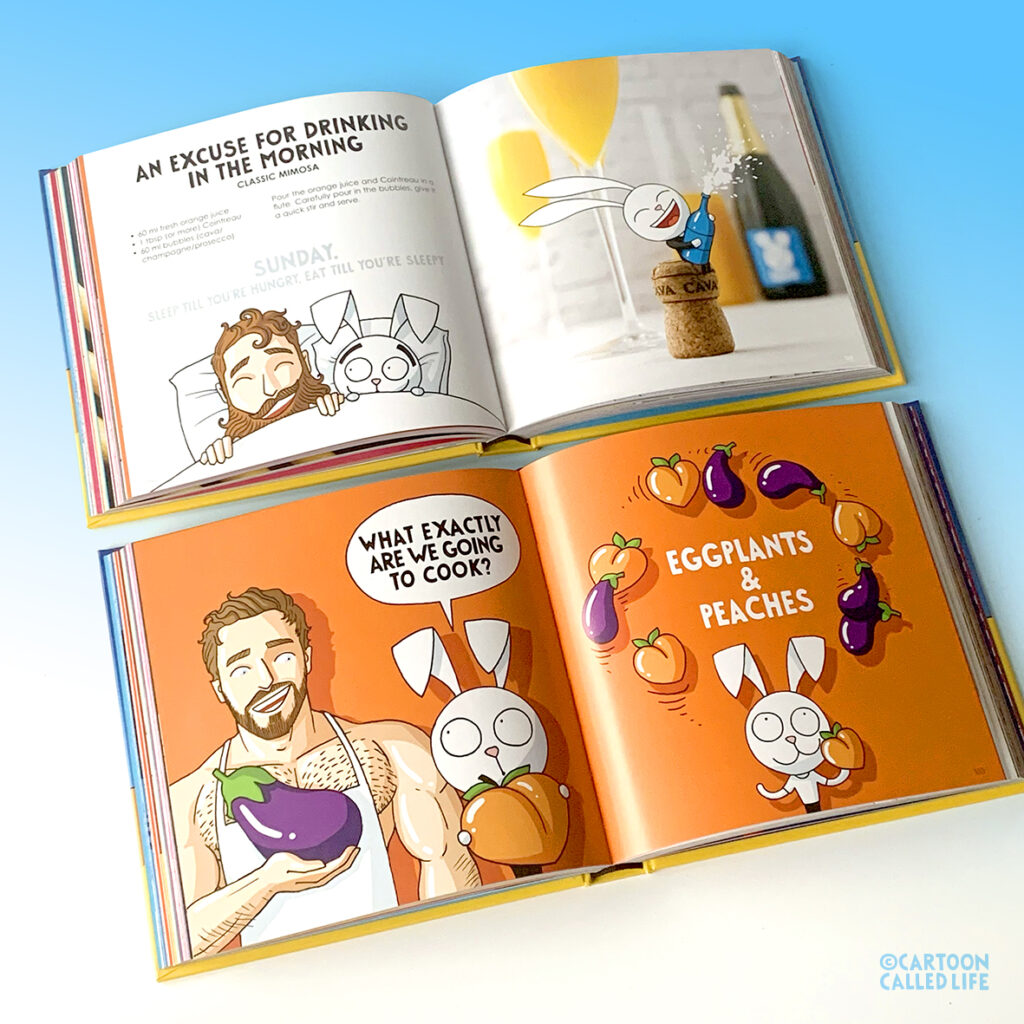
“The goal of the boutique gallery is also to explore some collaborations with other artists. We have an exhibition room that can be a platform for other artists. We want to give back to the community and to other artists.”
“We have plenty of ideas. Ideas are never the issue – not having enough time is our biggest issue.”
“We’re super-proud of what we’ve accomplished so far.”
Find out more about the adventures of Bunny and the Cartoon Called Life universe
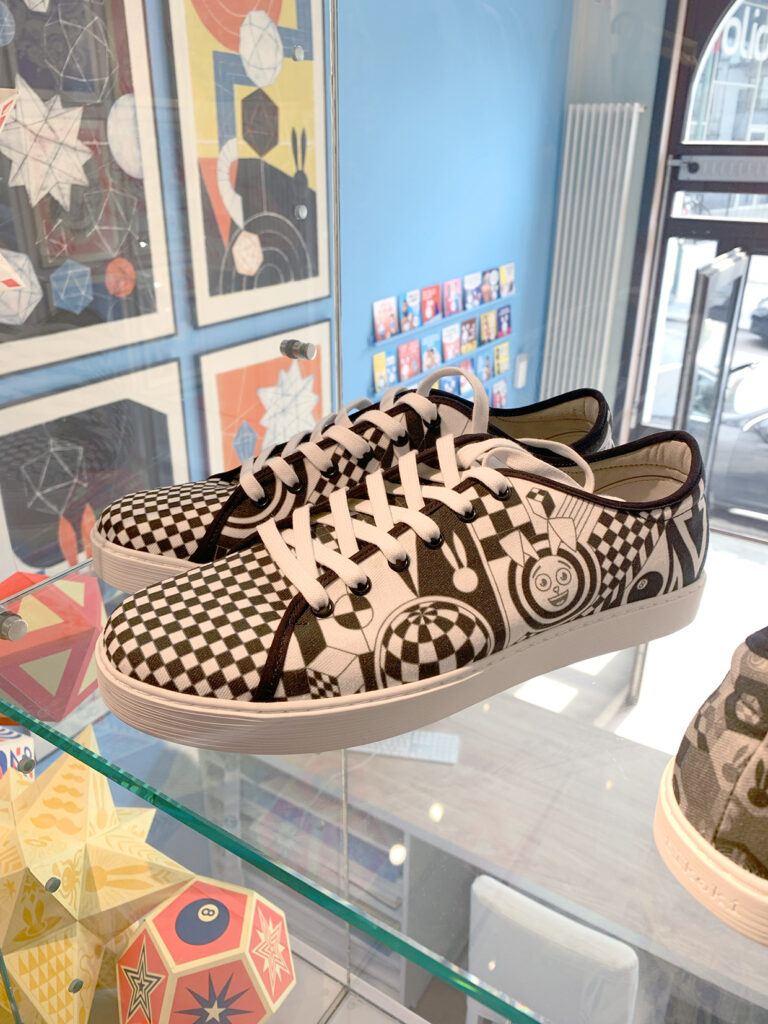
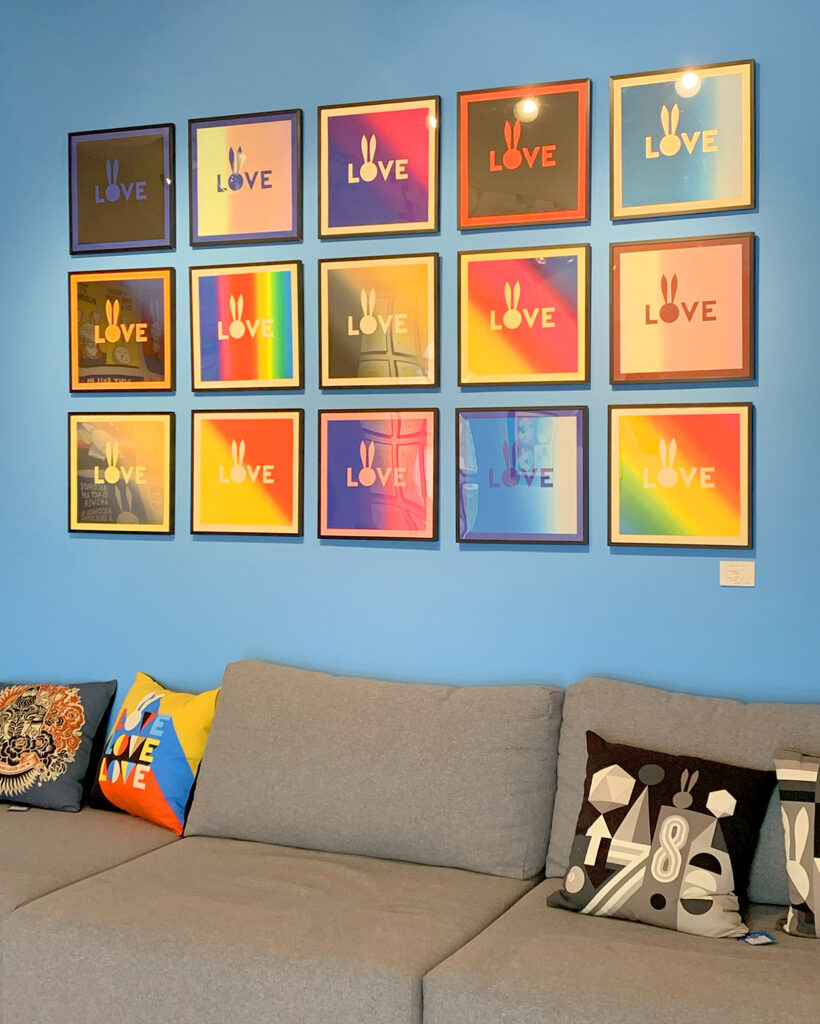
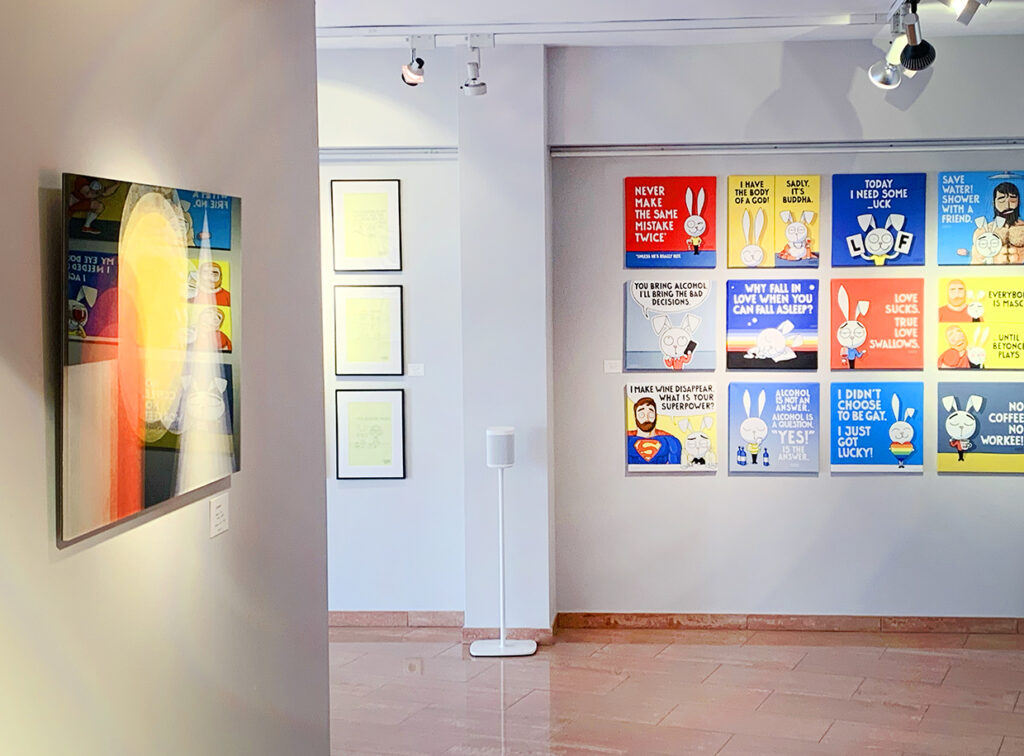
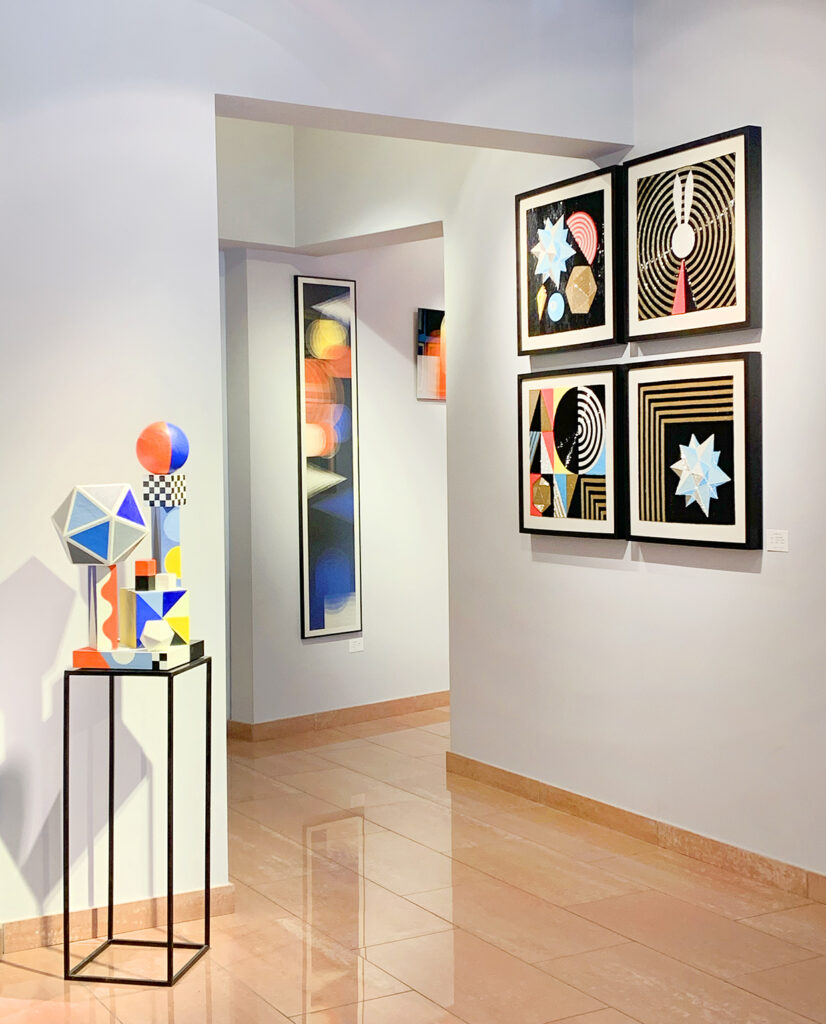
You may also like
-

Adriano Selva: The Soulful Pop Dreamer Who Feels It All
In a world that often rewards detachment, Adriano Selva chooses to stand beautifully exposed. His
-

Splinters of Joy: Lylybeth Merle’s Eco‑Queer Fairy Tale of Transition and Healing
Lylybeth Merle’s new book Échardes (“Splinters”), out in February 2026, is a tender, defiant journey through gender,
-
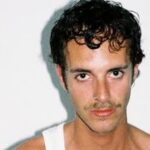
Music, Books and Brussels: A Conversation with Elliot Ibouzidene
Meeting artist Elliot Ibouzidene to talk about music, literature and his “unwritings” of Athens and Copenhagen, in
-

Renee Nicole Good: Community Mourns the Loss of a Queer Mother, Poet, and Advocate for Compassion
Renee Nicole Good, a 37‑year‑old queer writer and mother of three, was killed on Wednesday
-

The Bloemardin: Brussels’ Forgotten Rebel Spirit
If you’ve ever wandered past Brussels City Hall, you might have noticed a small statue

